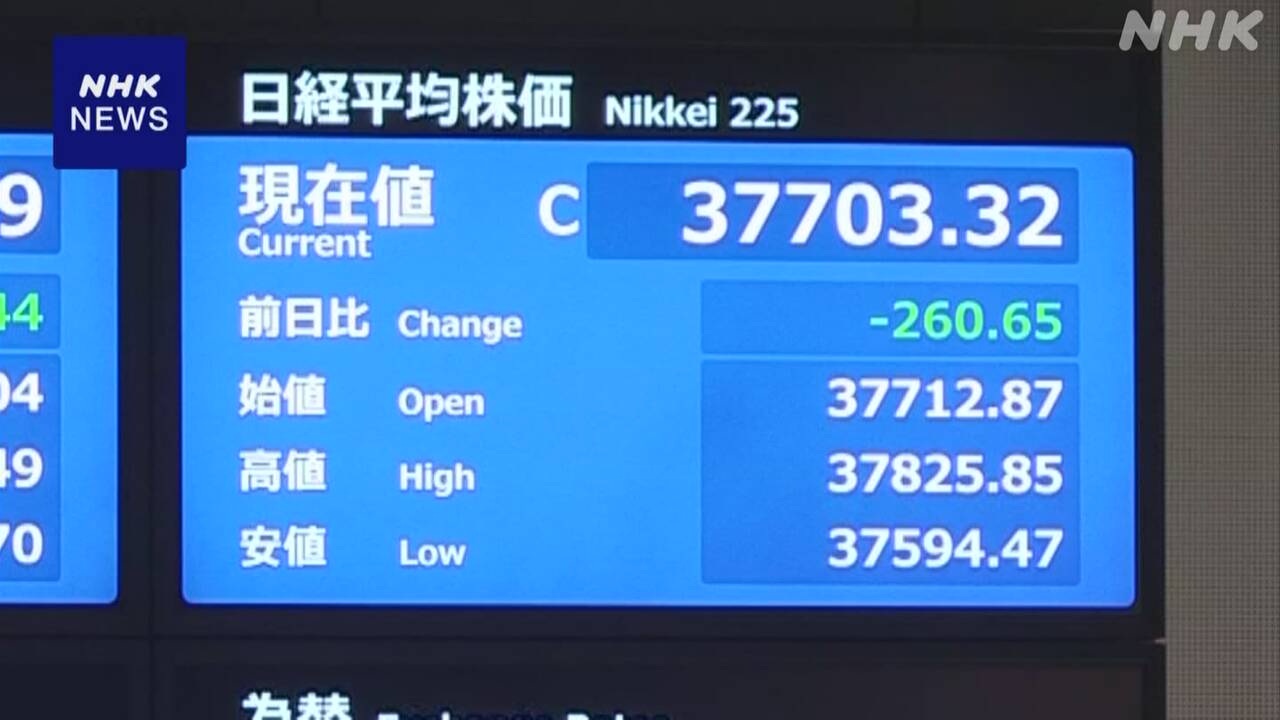On the 14th, the Nikkei stock average in the Tokyo stock market temporarily fell by more than 300 yen to the 37,700 yen level.
Major stock indexes fell sharply in the New York market on the 13th due to expectations that monetary tightening would continue in the United States.
In addition, the Nikkei Stock Average rose by more than 1,000 yen in one day on the 13th, and sell orders spread across a wide range of stocks in the Tokyo market on the 14th, with some trying to lock in profits.
▽The Nikkei Stock Average's closing price on the 14th was 37,703.32 yen, 260.65 yen lower than the previous day's closing price.
▽TSE Stock Price Index = Topics fell 27.44 to 2584.59.
▽The trading volume on the 14th was 1,908,980,000 shares.
Although the Nikkei Stock Average fell on the 14th, market participants pointed out the resilience of Japanese stocks.
The Nikkei Stock Average rose more than 1,000 yen on the 13th, briefly hitting the 38,000 yen level for the first time in about 34 years, but fell immediately after the start of trading on the 14th.
The background to this is that major stock indexes fell sharply in the New York market on the 13th due to the view that monetary tightening will continue in the United States, as well as a movement among investors to lock in their profits. I've been there before.
However, market participants noted that the range of price declines was limited, pointing out the resilience of Japanese stocks.
On the 15th, Japan's GDP from October to December last year will be announced.
Will the content confirm the expectations for Japanese companies and the Japanese economy, which are supporting the upward trend in stock prices?
Market participants are also paying attention to trends such as personal consumption.

